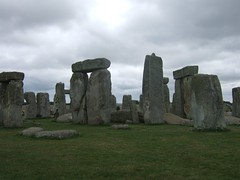Of course, it’s not.
One year ago, I was speaking with a funny google engineer (while I was visiting in Zurich) who commented about the idea of creating days with 28 hours. That reminded me of an old article I read some years ago in an astronomy magazine about our calendar, and the problems it has… Last night I found it, while looking for some old stuff to read before sleeping…
Firstly, what is a calendar? It’s a tool to mark the days within a year. We have some natural cycles that rule our lives: the days and nights, the Moon’s phases and the seasons (i.e. the movement of the Earth around the Sun). Our ancestors created the first calendar, putting in relation the days and the moon’s phases. Later they discovered it was more interesting to estimate the seasons (to know when they must do all the harvesting). They roughly adapted a moon calendar to a sun one, and later they fixed it, from time to time.
 The big problem to solve when you create a calendar is the fact that a revolution of the Earth around the Sun has not an exact number of days, but it is 365.24219 days (and this number slightly changes between milleniums). For overcoming this problem, somebody invented the intercalation of days (for example, the famous February 29th): a way to approximate the calendar to the real nature behaviour. Otherwise, the accumulation of the decimals shift over some decades could make that a Summer solstice happens in November, for example.
The big problem to solve when you create a calendar is the fact that a revolution of the Earth around the Sun has not an exact number of days, but it is 365.24219 days (and this number slightly changes between milleniums). For overcoming this problem, somebody invented the intercalation of days (for example, the famous February 29th): a way to approximate the calendar to the real nature behaviour. Otherwise, the accumulation of the decimals shift over some decades could make that a Summer solstice happens in November, for example.
Our calendar was designed in the Council of Nicaea, in 325 BC !! A millenium later, Pope Gregory XIII, ordered to fix some problems, mainly a shift of 10 days, but the basic rule of leap years remained in essence: “a February 29th must be inserted every four years, except if the year is multiple of 100, except if the year is multiple of 400”. With this rule, the error is only 4 seconds per year (i.e. a day shift after 21000 years). A rule with a cycle of 400 years.
For the last 2 milleniums, the catholic church has controlled our calendar, among other things. Meanwhile some wise authors have suggested modifications, trying to improve it. Like the persian astronomer Oman Kayyam (1048-1131) who invented a rule with a cycle of 128 years and less error than Nicaea-Gregorian’s rule (a day shift after 50000 years)… but it was ignored.
The question is: do we need a new calendar?